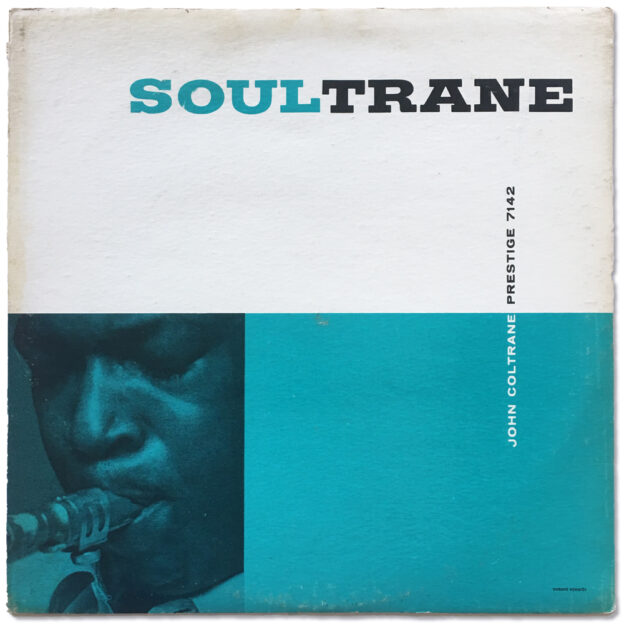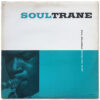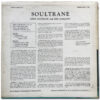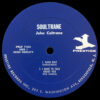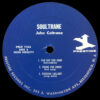- Second pressing with blue labels circa 1964
- “RVG” stamped in dead wax
Personnel:
- John Coltrane, tenor saxophone
- Red Garland, piano
- Paul Chambers, bass
- Art Taylor, drums
Recorded February 7, 1958 at Van Gelder Studio, Hackensack, New Jersey
Originally released in 1958
Selection: “Good Bait”
For years I ignored this album. To be honest, I had dismissed it as a “lesser early solo Coltrane date for Prestige”. Then about a year ago I found a (surprisingly rare) ‘80s Original Jazz Classics reissue with one of those nice, thicker cardboard jackets typical of OJCs of that era and felt obligated to give it a shot.
From the jump, “Good Bait” sounded corny, hearkening back to the Carmichael-Loesser composition “Heart and Soul” and the good ol’ days of the ’30s (interestingly, the Wikipedia page for “Good Bait” only mentions the chord changes of “I’ve Got Rhythm” and a French song named “La Mer”). I stuck with it though, giving “Good Bait” several consecutive plays, and soon enough the tune’s unorthodox chord changes stood out like a sore thumb.
Soultrane predicts the bop revolution that would coalesce with Giant Steps, and “Good Bait” is a good early example of Trane’s patented sheets of sound. Coltrane calls an audible here, taking the Tadd Dameron composition at a strolling pace then proceeding to trample all over it with an endless blitzkrieg of 64th notes — an aesthetic Coltrane birthed five months prior on the title track of Blue Train.
Soultrane is a rollercoaster of tempo changes. Following the paradoxical double-time soloing on the album opener, the leader slows things down with a reading of “I Want to Talk About You”. Side two begins with the brisk momentum of “You Say You Care”, only to slow back down to a ballad’s pace with “Theme for Ernie” and concluding with the frenetic energy of “Russian Lullaby”.
Once again, the act of acquiring an LP has encouraged me to give an album more careful consideration than if I merely stumbled upon it on Spotify. With the OJC reissue, “Good Bait” became part of my regular rotation, but it wasn’t until I was captivated by the magic of these fresh RVG stampers that I felt inspired to explore the rest of the album with greater focus. Today I can confidently say that Soultrane is a thoughtful, promising effort from a budding superstar that should not be overlooked.

